Eurotech
EuroTeCH: European Technologies and strategies for Cultural Heritage at risk
Welcome to the EuroTeCH project website. Below news in Polish, we invite you also to the official website of the project official website of the project and fanpage on FB!
News in the project
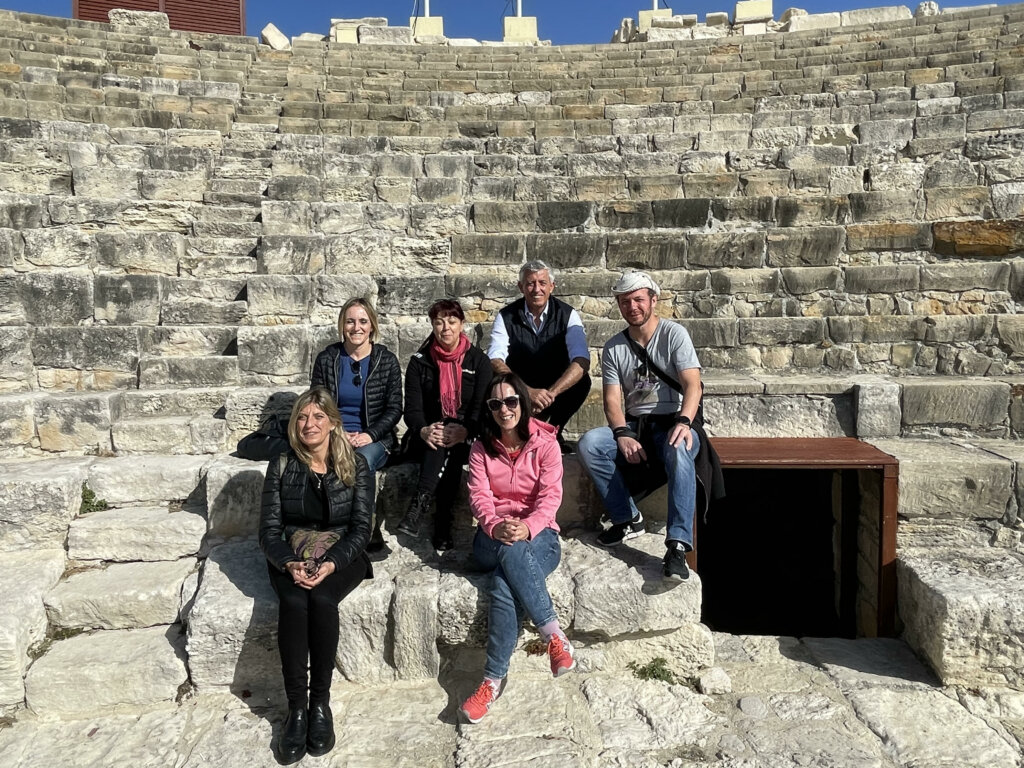
On 8-12.12.2021 in Nicosia, the capital of Cyprus, a training was held on practices of preventing illegal trade in historical monuments. Representatives from many countries, including USA, France, Italy and Spain, shared their experiences. On behalf of the Centre, the training was attended by Dr. Krzysztof Narloch and Dr. Danijela Popović.
Something is coming to an end…..
On 22.11-27.11 the last, summing up meeting of the Eurotech project partners took place. The Centre was represented by Prof. Piotr Dyczek and Dr Krzysztof Narloch. This time we went to Tarragona, which is sunny at this time of the year. During the meeting, we discussed the issues related to the report and decided to publish the project results.
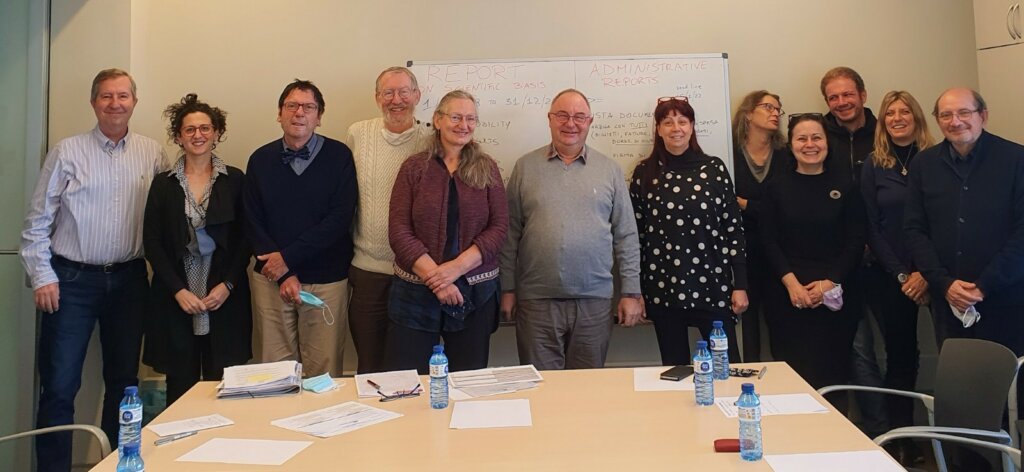
At the same time our friends from Universitat Rovira and Virgili organised the fifth edition of the archaeological congress, which this time was devoted to Roman ports, shipping and the fleet.
More information: https://tarracobiennal.com/5cong/index_ca.html.
A representative of the Centre could not have missed it. One of the speakers was dr Krzysztof Narloch.
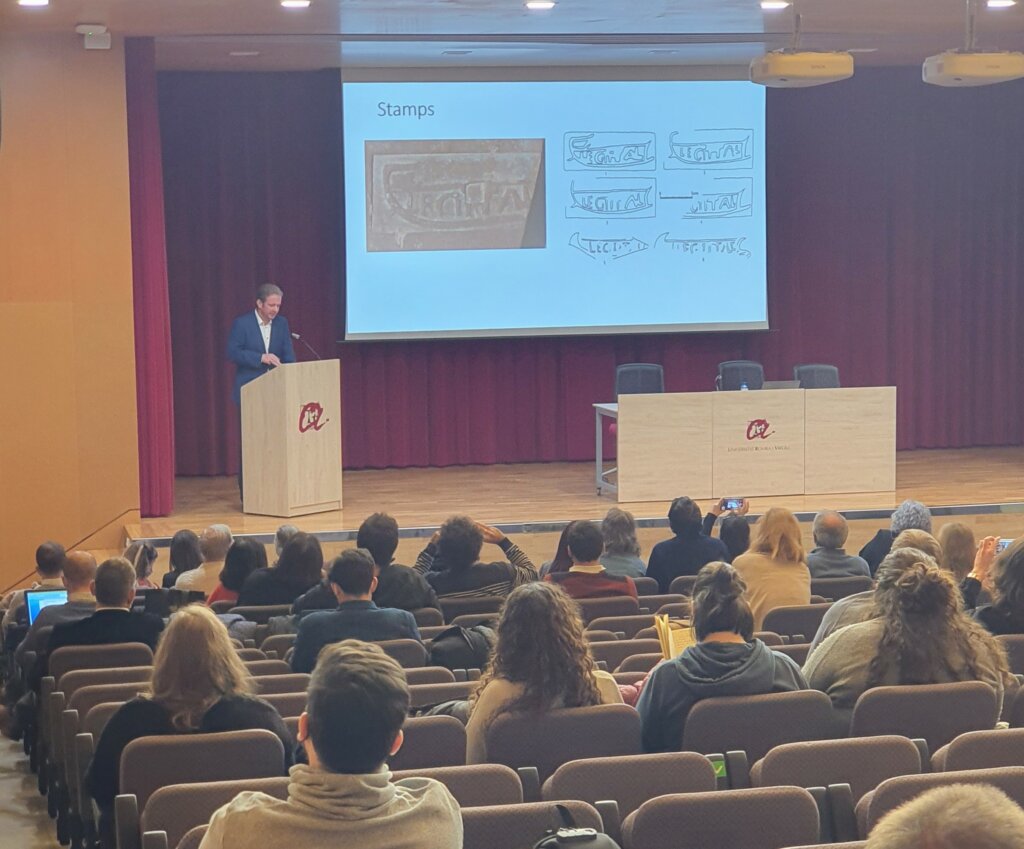
…… something is beginning.
However, this is not the time to say goodbye, as we will meet in the same company next year, when we will start new projects on climate change and migration in antiquity.
Another semester of the Eurotech project is behind us, so the time for summaries has come. Due to the pandemic and related restrictions our cooperation has taken the form of online contacts. Apart from routine working meetings, we have organised a series of webinars open to the public:
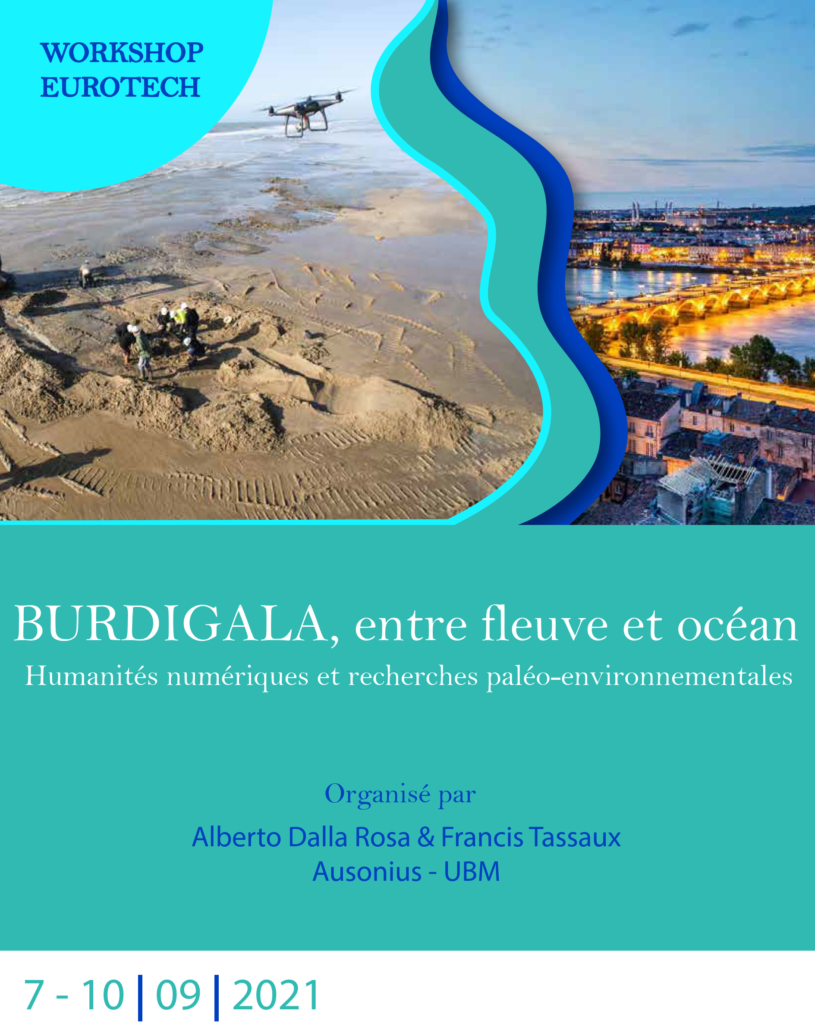
In the picturesque city of wine, Bordeaux, the first Eurotech partner seminar in over eighteen months took place, where we met in person. Due to the pandemic situation, the number of participants was limited and the event was held under a sanitary regime.
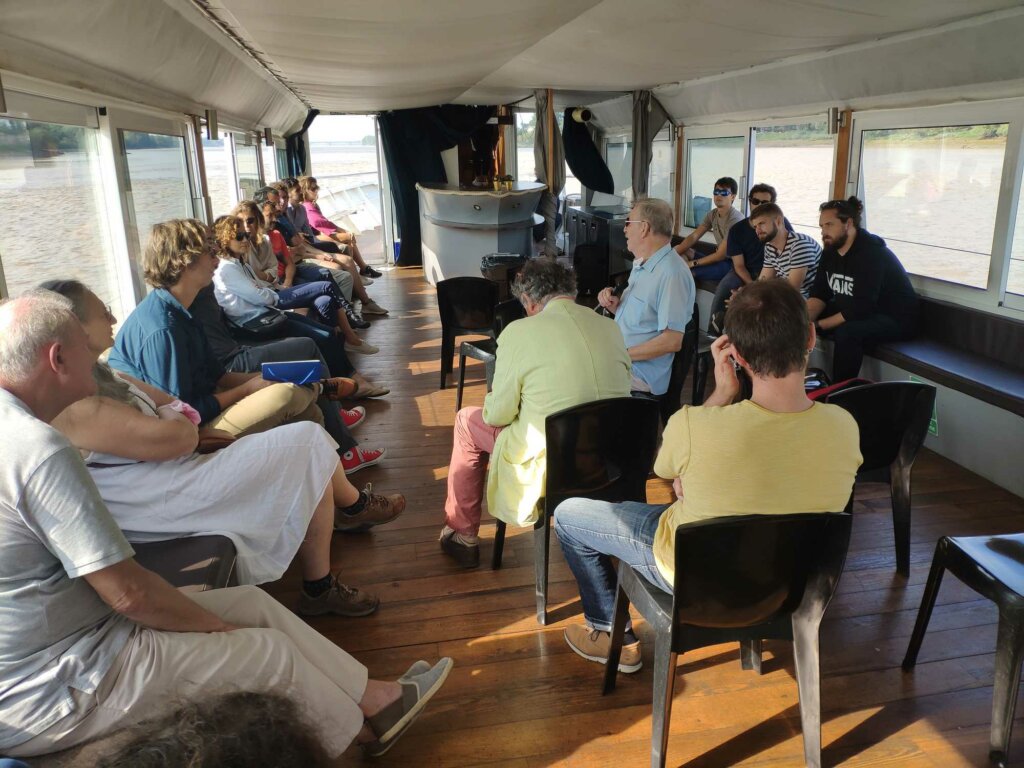
It was for this reason that the indoor part of the meeting was kept to a minimum. Its main part was on how to digitally document the heritage of the Romans, with particular emphasis on epigraphic monuments, both inscriptions and monuments.
Fortunately, the aura of sunny Bordeaux and the Médoc region was favourable to the activities carried out outside. The field work focused on how to protect cultural heritage from natural erosion caused by the Garonna and Dordogne rivers and their common estuary, the Gronde, as well as from related human activities.
The next day we went to the ocean, where after a long but very pleasant walk on the beach we reached the place where archaeological research is being carried out on human activities related to the coast. Their organisation requires special preparation as they are dependent on the ocean tides. Specialised equipment is needed to pump out the water very quickly, as well as an efficient organisation of work to complete and document a given stage of work before the next tide.
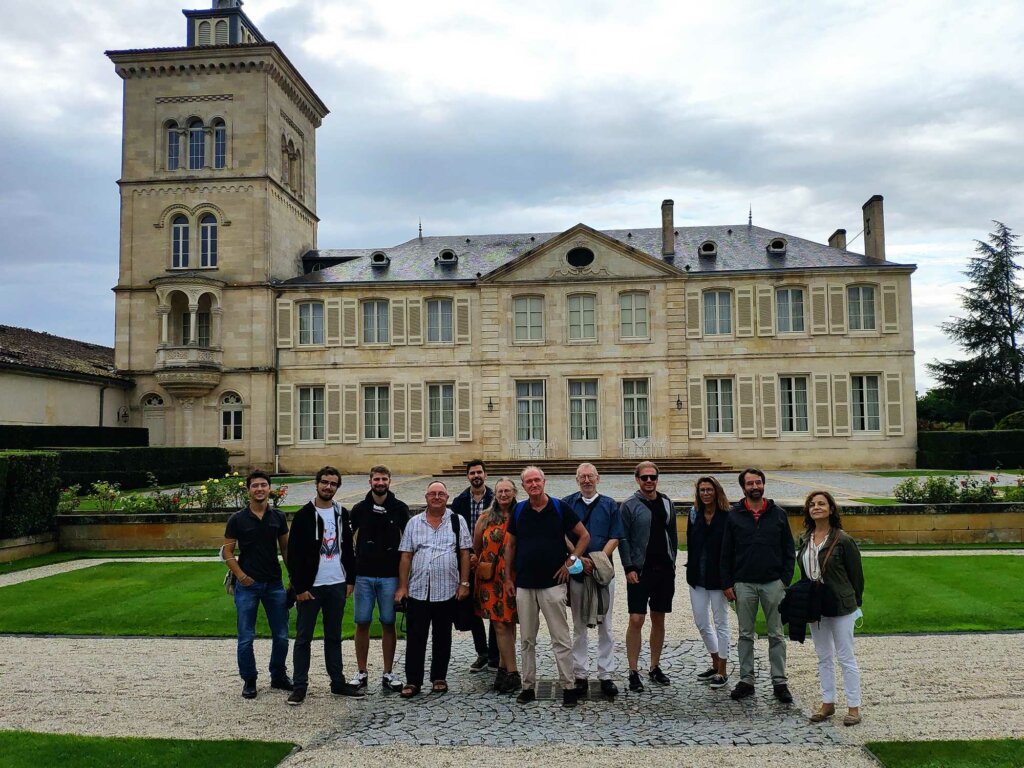
Being in the Médoc, we could not miss such an opportunity and therefore the last item on the agenda was a tasting of the world famous wine in one of the chateaux.
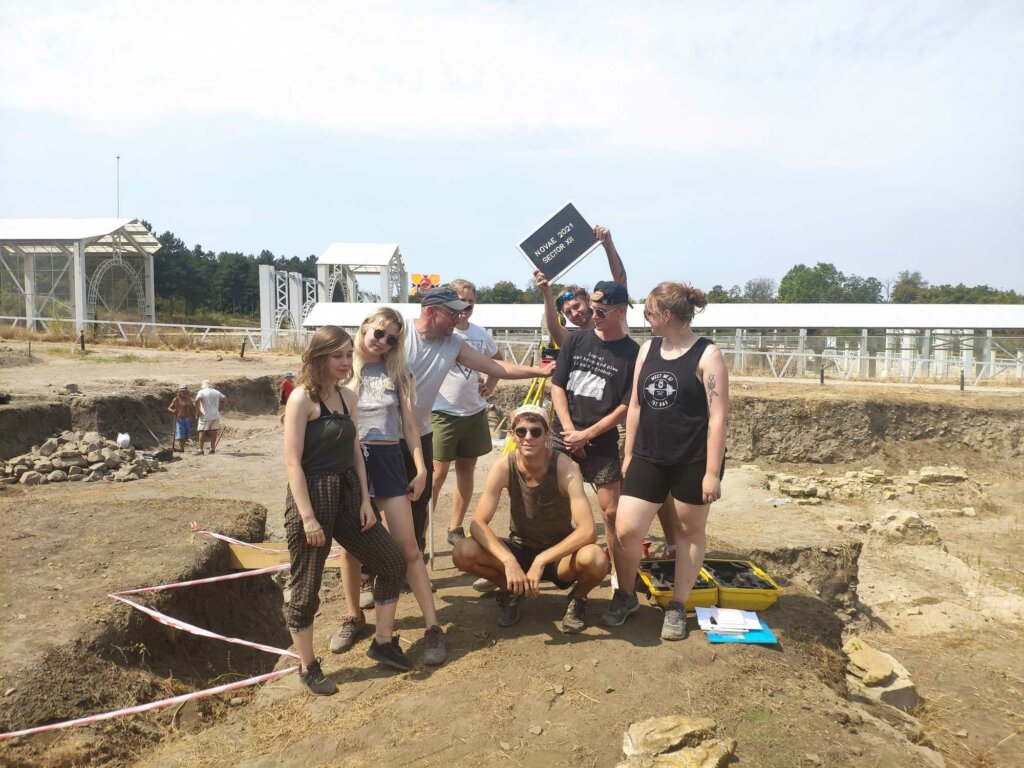
During this year’s excavation campaign at Novae we also held a two-week workshop for students as part of the Eurotech project. Due to pandemic restrictions a small group took part in them.
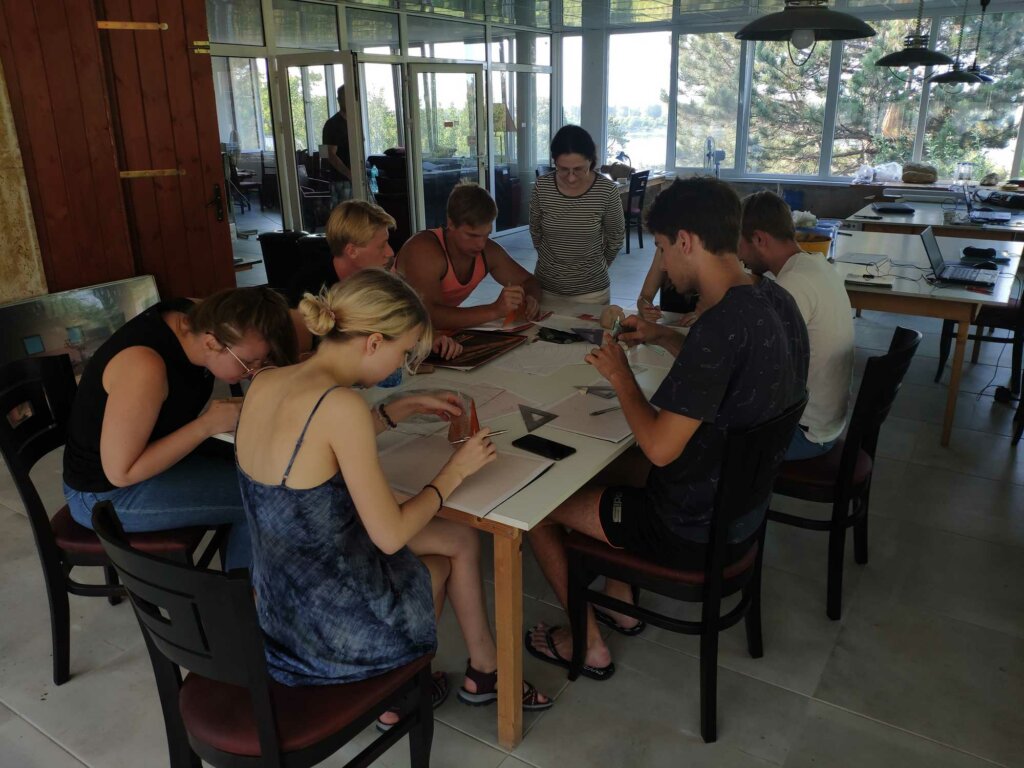
The participants learnt about the methodology of archaeological research and how to document archaeological artefacts using traditional methods as well as RTI.
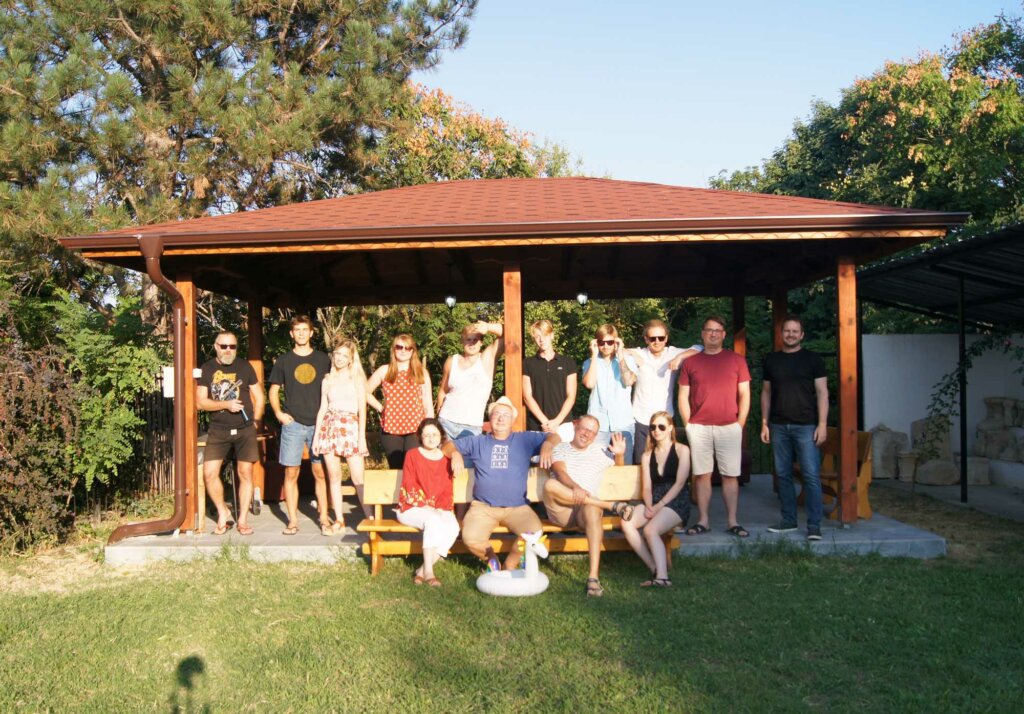
No less important for the participants were the aspects of an excavation campaign involving the management of people and the scheduling of work to achieve pre-defined goals.
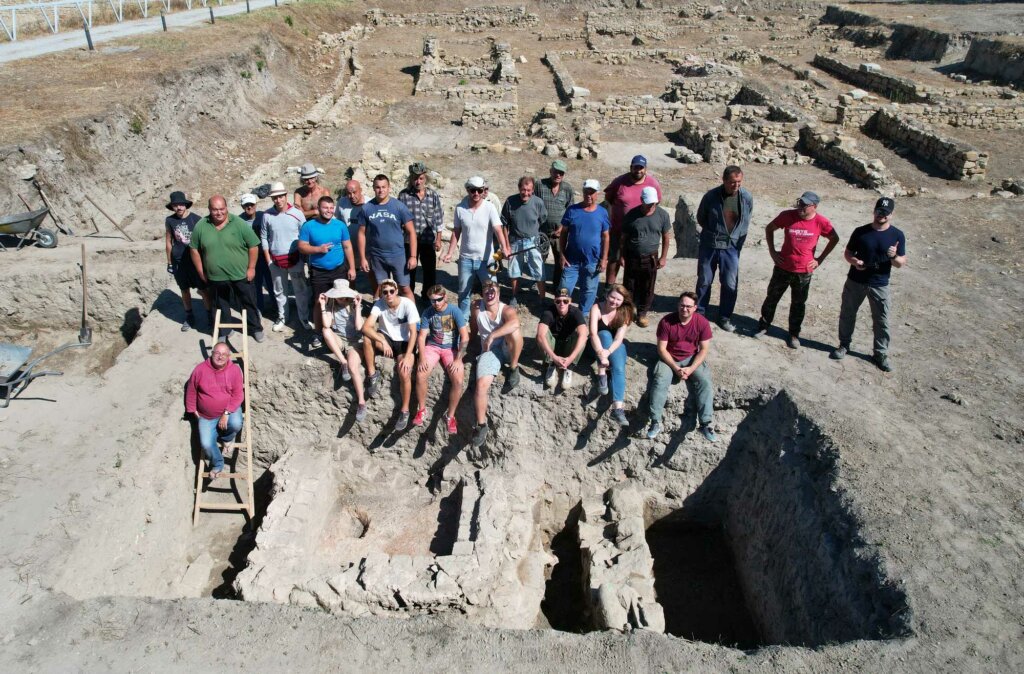

The first was hosted by Professor Francesco Tiradritti – Director of the Italian Mission to Egypt and Sudan. It concerned the research and interpretative possibilities of the cenotaphs discovered in Le Havre and Egypt. Due to the vast subject matter, the lecture was divided into two parts:


The next online meeting dealt with heroes, warriors and soldiers in Europe in the period from the 13th to the 3rd century BC. Its main theme was the development of the military in the Bronze Age, the mutual influence in this regard of the various populations inhabiting our continent.

At the next meeting, the webinar was led by Professor Joaquín Ruiz de Arbulo, who took the audience on a fascinating journey through ancient Tarragona. His lecture covered the origins of Roman settlement in this Spanish city, through the development during the Imperial period, to the barbarian invasion in late antiquity.

Professor Silvano Agostini’s talk took us to the capital of the empire, Rome. In this case, we abandoned archaeology for a moment to look at the monuments of the eternal city through the eye of a geologist. During his lecture, he familiarised the audience with the methods of obtaining raw materials, technologies of their exploitation, transport and logistics, as well as methods used during the construction of buildings.

The last of the series was a webinar led by a pair of our representatives Danijela Popović and Krzysztof Narloch. The first part of the webinar focused on our excavations in the Balkans – Shkodra, Risan and Novae. The second part covered the issue of ancient DNA and the possibilities of its acquisition and analysis in research conducted by archaeologists.

At the last working meeting due to the pandemic situation the partners unanimously decided to extend the project, so our adventure continues.
“A strong team of four people of the Center” returned from almost two weeks workshop, which in the framework of the European Union EuroTech program took place this time in Egypt. This is where researchers from Italy are conducting archaeological and conservation work – at the necropolis of Western Thebes – and from the University of Warsaw – Deir el Bahari – the temple of Hatshepsut.
Both teams presented their research as well as the entire methodology and methodology of conservation and preservation works. We were proud that Polish achievements in this field represent the highest level in the world.
In addition to scientists, the workshop was also attended by a large group of students and doctoral students. We had the opportunity to see archaeological sites that are normally closed to tourists, but also those that will be opened to the public only in a few years, after all the necessary research and conservation work is completed.
We traveled many kilometers to visit dozens of Egyptian tombs in the Western Necropolis of Thebes, the Medina, the Valley of the Queens, the Valley of the Kings and the Western Valley. Also included were some of the most famous but also lesser known structures, mainly temples.
Our route started in front of the reconstructed Memnon statues and led all along the west bank of the Nile to Luxor, Karnak and then to Aswan through the Sahara to Abu Simbel and along the Nile to Edfu. It ended in Cairo, where we also visited the Polish station of the Center for Mediterranean Archaeology of the University of Warsaw. We also had a chance to see the archaeological collections of the largest museums.
The next EuroTech meeting will take place in Warsaw at the beginning of April. Then the Centre will host a workshop and a scientific conference. The main topic of the meeting is: Protection, conservation, reconstruction and new technologies – Polish contribution to the protection of the World Cultural Heritage.
On 14.11.-17.11 another workshop of the Eurotech program took place, this time in Paestum (Italy). Representatives of the Centre, Prof. P. Dyczek and Dr. M. Lemke, participated in interesting presentations on progress in the conservation of historical monuments and the arrangement of collections of antiquities in museums in the Paestum Archaeological Park and in the Pontecagnano Museum.
We will slowly come to say goodbye to Novae this year. However, our travels continue. Straight from Bulgaria the team is going for a workshop in Tarquinia within the EU program – EuroTech, where we will discuss new methods of protecting wall paintings – including Etruscan ones – and we will see newly discovered and newly conserved Etruscan tombs. It promises to be very exciting.
Behind us is another meeting organized as part of the European Union EuroTech program. This time a large group of specialists from Europe, Africa and North America arrived in Pescara on the Adriatic coast and Chieti nearby. The main topic was the threats posed by illegal trade in historical monuments, not only to archaeological sites, but also in social and economic terms. The center’s delegate, Krzysztof Narloch, presented an analysis of reasons for illegal search of small archaeological artefacts, such as coins or small metal objects, and ways and means of their illegal distribution in the European Union.
This year, the Giro d’Italia route ran through Chieti, towering over the plain not far from the venue. In this one of the great “tours” four of our compatriots are fighting for the yellow jersey and we are cheering them on. Forza Kamil Gradek, forza Rafał Majka, forza Łukasz Owsian, forza Paweł Poljański!
Another workshop under the EuroTech European Union program took place. This time we were hosted in Verona. On behalf of the Centre participated in a large group of five people. The workshop was devoted to the valorization of city defenses from different historical periods. The analysis of Verona’s defensive walls is not only a great example of military architecture from the Roman period, but also a good example of the effective application of conservation and reconstruction techniques.
Representatives from the countries participating in the EuroTech program presented various scientific aspects and research and conservation problems related to military architecture: Tarragona, Aquileia, Selinunt, Canterbury and various ancient cities from the Abruzzo area. In this context, the Centre presented the documentation and measurement possibilities offered by 2 D and 3D optical techniques. Another important topic was the documentation and preservation of military architecture in conflict areas. The focus was on the problems of various Libyan sites.
Another workshop is planned for mid-May in Chieti and Pescara.
The implementation of the EU EuroTech program has started. At the end of November the first workshop was held in Italy at the University of Chieti, which was attended by representatives of all units of the international consortium. The Centre was represented by Prof. P. Dyczek. The meeting consisted of two parts: organizational and substantive. The financial rules, information flow, principles of bilateral cooperation and the rhythm of subsequent meetings, which will take place in different countries once a semester, were established.
An important decision was also unanimously made that students, doctoral students and young scientists from partner countries will be invited to subsequent substantive meetings, within the EuroTech budget. We want them to take an active part in these meetings, presenting papers on the main topic of the program: Application of new methods in the protection of endangered monuments classified as World Heritage Sites.
We have planned a schedule of major meetings until the end of the program, in 2021, and we will hold them in Rome, Tarquini, Tarragona, Cyprus and Bordeaux. Of course, one of the meetings will also take place in Warsaw, only in 2020, but already in the summer semester an international group of students will participate in the excavations conducted by the Center.
During the content-related part of the meeting, representatives of individual countries presented their units and research conducted by them.
The next meeting will also take place in Chieti at the end of January and will be devoted to peripheral and supporting EuroTech programs.
The European Union’s EuroTech program is getting underway. From 25.11 to 2.12 the first meeting of representatives of the scientific units of this international consortium will be held at the University of Chieti-Pescara. The participants will present the achievements of their home units. We will also discuss the scientific program and schedule of joint meetings, at least one of which will be held in Warsaw, probably in spring next year. A tab dedicated to this program will soon appear on our website.
After returning to the country a pleasant surprise awaited us. Starting in November, the Center will begin a new European Union program, Eurotech, focused on applying new research and conservation techniques to the documentation and protection of the world’s cultural heritage. The program was ranked 5th out of 70 applicants. The three-year project will be carried out together with: Universita D’Annunzio di Chieti-Pescara and Istituto Centrale per l’Archeologia-MIBAC i from Italy, Universitat Rovira I Virgili from Spain, Cyprus Institute from Cyprus, Universite Bordeaux Montaigne from France and private specialized companies from Italy: Ud’Anet srl , Pegaso srl and Beyda Geoplan company from Libya. The first organizational meeting will be held at the end of November in Chieti, Italy. Of course, it is also planned to organize one of the workshops in Poland. We will successively inform about the progress of this program by posting interesting scientific materials on our website.
